By Rick VanSickle
When the Fitzpatrick family sold their beloved CedarCreek Estate Winery in the Okanagan Valley to the von Mandl family in 2014, one of the first things to occur was the decision to convert to organic farming.
• Note1: Wines In Niagara contributor Peter Rod looks at the ageability of B.C. wines after blind tasting over 20 wines from the Okanagan Valley with his tasting group
• Note2: More B.C. wines, including Vanessa Vineyards, Mission Hill, Township 7 and Road 13 posted next week
The three-year conversion process, accredited by Ecocert Canada, began at the CedarCreek Home Block Vineyard in August of 2016. The plan is to accredit each of the vineyard properties over a period of five years with Home Block leading the way.
Winemaker Taylor Whelan has already seen big changes in the grapes and ultimately the wines.
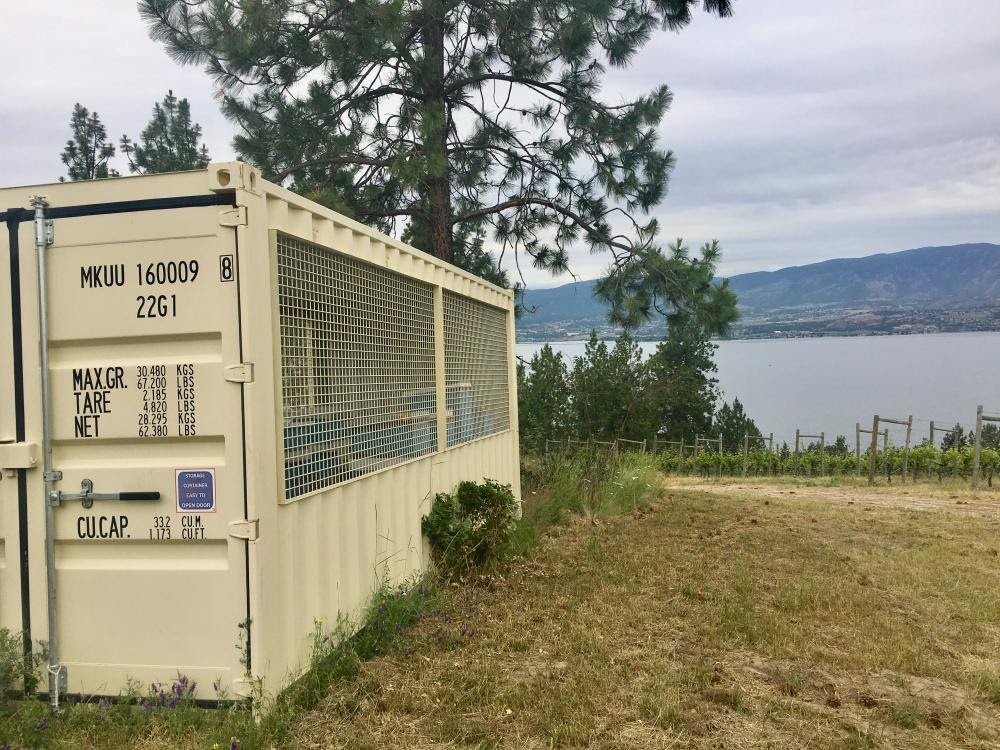
“We knew that converting to organic farming meant utilizing natural tools and building complex and resilient systems in the vineyards which would lead to better fruit and wine,” he said. “What we didn’t know, however, was that this transition would result in other unplanned changes and benefits. One of the best examples I can think of involves our honeybee hives.”
Two yeas ago, CedarCreek introduced bees into the Home Block Vineyard. Kurt Simcic, the estate’s viticulturist, had used them in New Zealand, and he worked with Arlo’s Honey Farm to deliver 18 hives. Grape vines are self-pollinating, but bees help with the promotion of wild flowers, beneficial plants (such as crimson clover and mustard), and beneficial insects. The bees happily worked the vineyard site over the summer of 2018.
“I had kept bees in an amateur capacity in the past and was thrilled to now have around a million of the little ladies working for us.”

But there was a side benefit that Whelan, above, didn’t expect. “As our harvest dates for Pinot Noir approached, we were hit with a lot of rain,” he said. “This can be devastating in a Pinot vineyard as the delicate skins can split, resulting in infection and reduced quality.”
And splitting did happen across the Pinot blocks — 2 and 4 included. “As Kurt and I walked the blocks to survey the damage, however, I noticed something I hadn’t ever seen. Our fruit was absolutely covered in honeybees — hundreds of thousands of them — and they were methodically cleaning the fruit which had split, removing the sweet grape juice from the skins.” For the bees it was a quick sugar hit, but for winery it was life-saving as it greatly reduced the chance they would have botrytis affected fruit and be forced to pick early.
“I looked to Kurt in surprise and he shrugged his shoulders and in his understated Kiwi way said, ‘Bees, mate … they’re good like that.’ ”
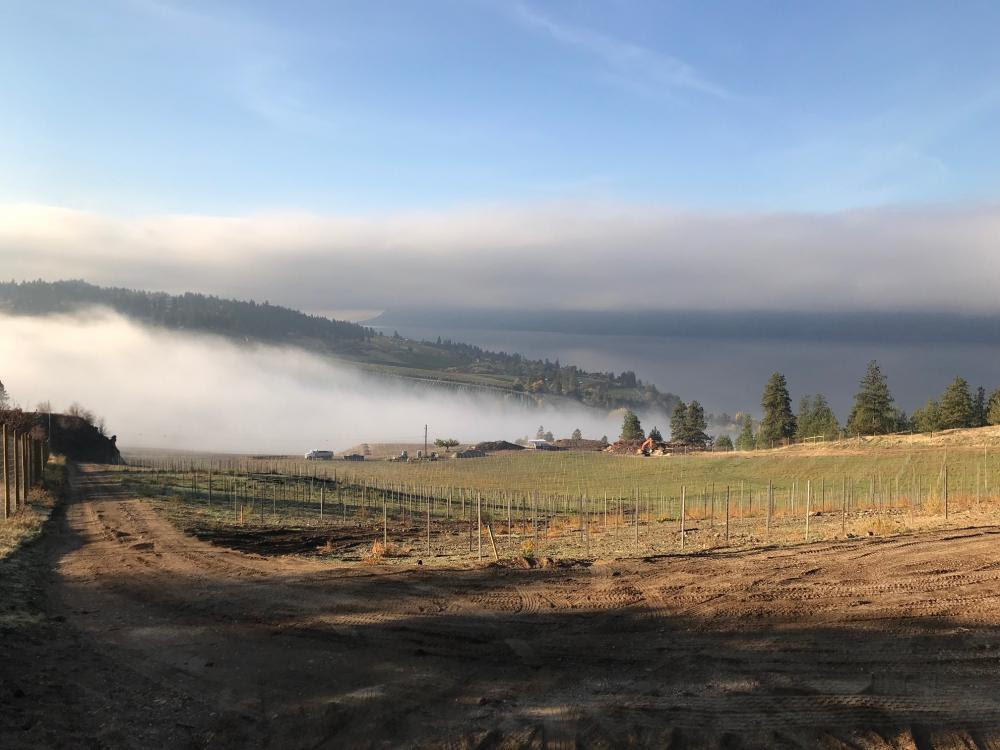
Ultimately, the bees’ hard work gave the winemaker at least another seven days on the vine without disease pressure and allowed him to wild ferment the wines without concern for fruit health.
“This is just one example of the multitude of changes we have seen in the vineyard since our organic transition began,” he said. “With that transition complete as of harvest 2019 at CedarCreek, we will be delivering certified organic wines to (consumers) within 12 months’ time. An ambitious endeavour but justified and rewarding.”
Organic farming has resulted in other dramatic changes in the blocks “I thought I had known,” said Whelan. This is most evident in Block 5 Chardonnay. “What was once a vigorous, leafy block has rapidly become more balanced. Flavour profiles have swung from steely and limey, to floral and lemony.”
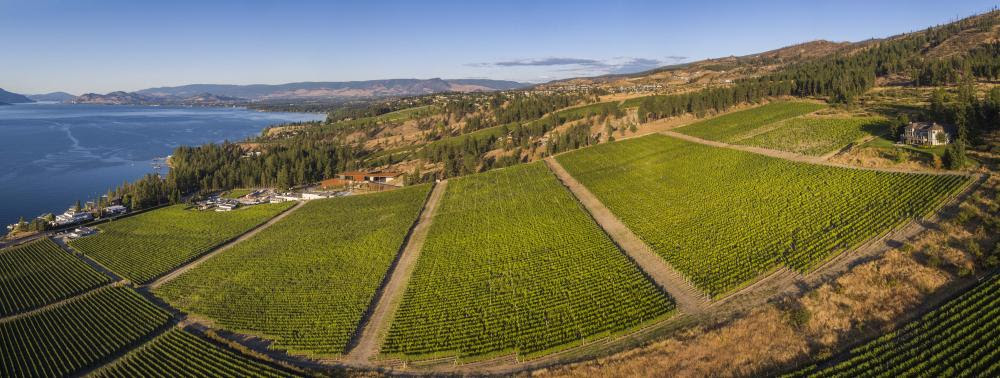
Whelan said it’s a result of replacing chemical fertilizers with composting. The slow release of nutrients combined with water holding capacity of compost has changed how the vines grow, slowing them down and allowing them to ripen at much lower sugars. In 2016, the Platinum Chardonnay was 14% alcohol, the 2017 is 13.2%, and the 2018 will be 12.8%.
“An exciting shift towards increased balance and elegance.”
Here’s what I liked from the new releases from the top Platinum series of wines from CedarCreek.
The Whites
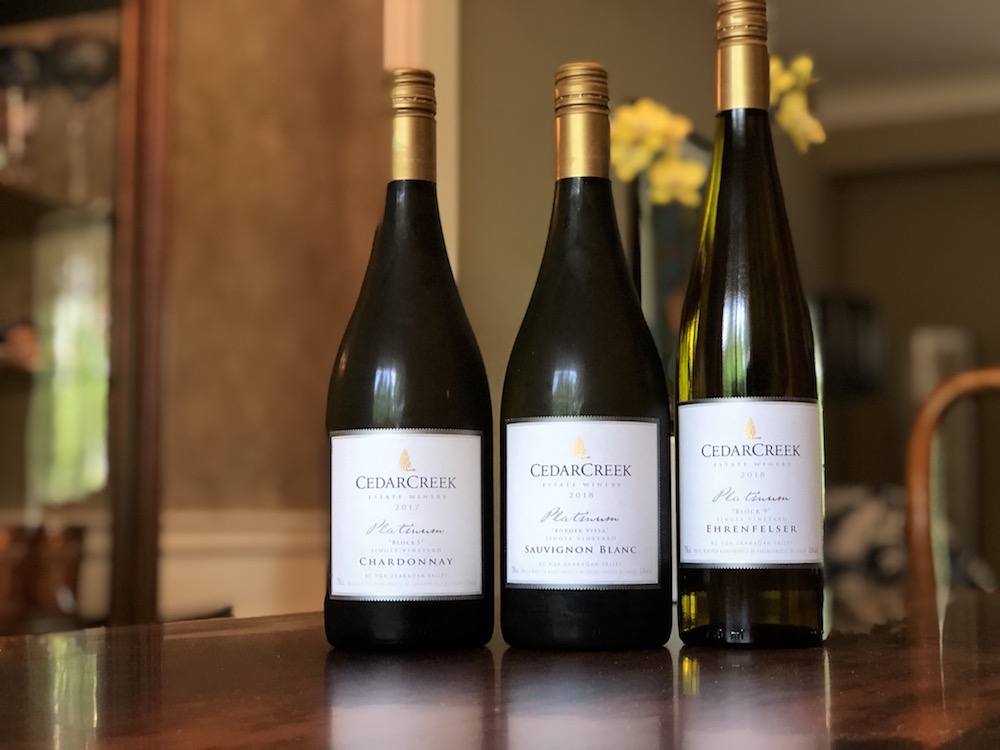
CedarCreek Platimum Block 5 Chardonnay 2017 ($35, 91 points) — As CedarCreek moves to more elegant, lower alcohol wines after conversion to certified organic farming, there have been dramatic changes to the style of wines being produced at the estate. Balance is the key as the alcohol levels drop and everything comes into harmony. This vintage is a good illustration of how organics is having a positive impact on the wines at CedarCreek. It has an elegant and fresh nose of Bosc pear, crisp lemon, biscuit, floral notes and light, integrated spice notes. It has displays some creamy notes on the palate, but delicately balanced, showing pear, nougat, lemon freshness, barrel spices, minerals and a creamy yet vibrant core that shines through the finish.
CedarCreek Platinum Border Vista Sauvignon Blanc 2018 ($30, 92 points) — A really nice expression of this versatile food grape with a nose of grapefruit, kiwi, passion fruit, underlying grassy notes and sweet herbs. It’s fresh and floral on the palate with zesty citrus, passion fruit, zippy acidity, honeydew melon and a creamy note, presumably from the aging in the 1,500 L oak foudre and concrete egg, on a vibrant finish.
CedarCreek Platimum Block 9 Ehrenfelser 2018 ($30, 93 points) — What a pleasant surprise from this under-appreciated German varietal that thrives in B.C.’s Okanagan Valley. CedarCreek stopped purchasing Ehrenfelser from growers and now only uses estate fruit from a 3-acre block, which means only 269 cases were produced. It literally shocked me and others I poured it for, it was that good. It has a fresh, vibrant nose of peachy-tangerine, apricots, a floral note and seashell minerality and salinity. Slightly off-dry on the palate to give the fruit a higher profile, it displays notes of white peach, Mandarin orange, citrus zest, ginger, salty minerality with a dash of honey and mouth-watering acidity through the finish. A finer Ehrenfelser you will not find.
The Pinots
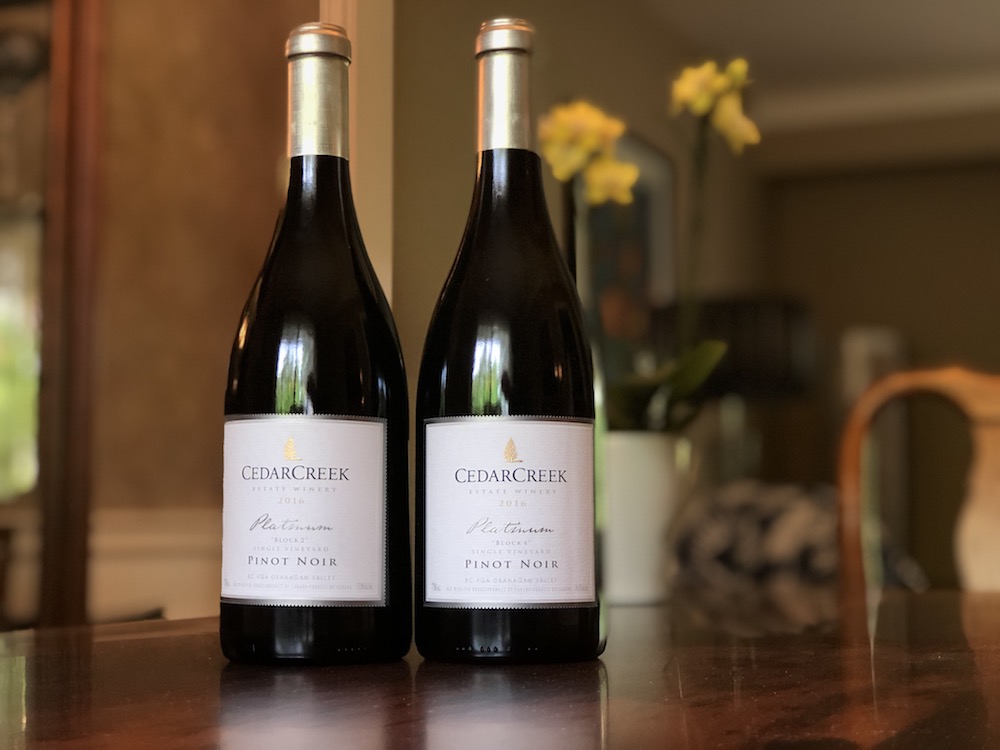
CedarCreek Platinum Block 2 Pinot Noir 2016 ($55, 92 points) — Both of the Pinots in the Platinum series have a soulful feel to them, wines of immense personality and style. The Block 2 has an enticing nose of black cherries, wild brambly raspberries, underlying cassis and elegant oak spice notes. It’s like velvet on the palate with dark cherry fruit, cassis, anise, brambly/earthy notes, light oak spice and persistence through a poised and smooth finish.
CedarCreek Platinum Block 4 Pinot Noir 2016 ($55, 93 points) — This is similar in essence but reaches just a little deeper with the firmer structure and aging potential. The nose shows freshly crushed raspberries, vanilla oak spice, earth/undergrowth, strawberries and anise. It pops on the palate and shows a mélange of red fruits, minerality, tight structure and firmer tannins and with a vibrant core through a long, long finish. Cellar 5+ years.
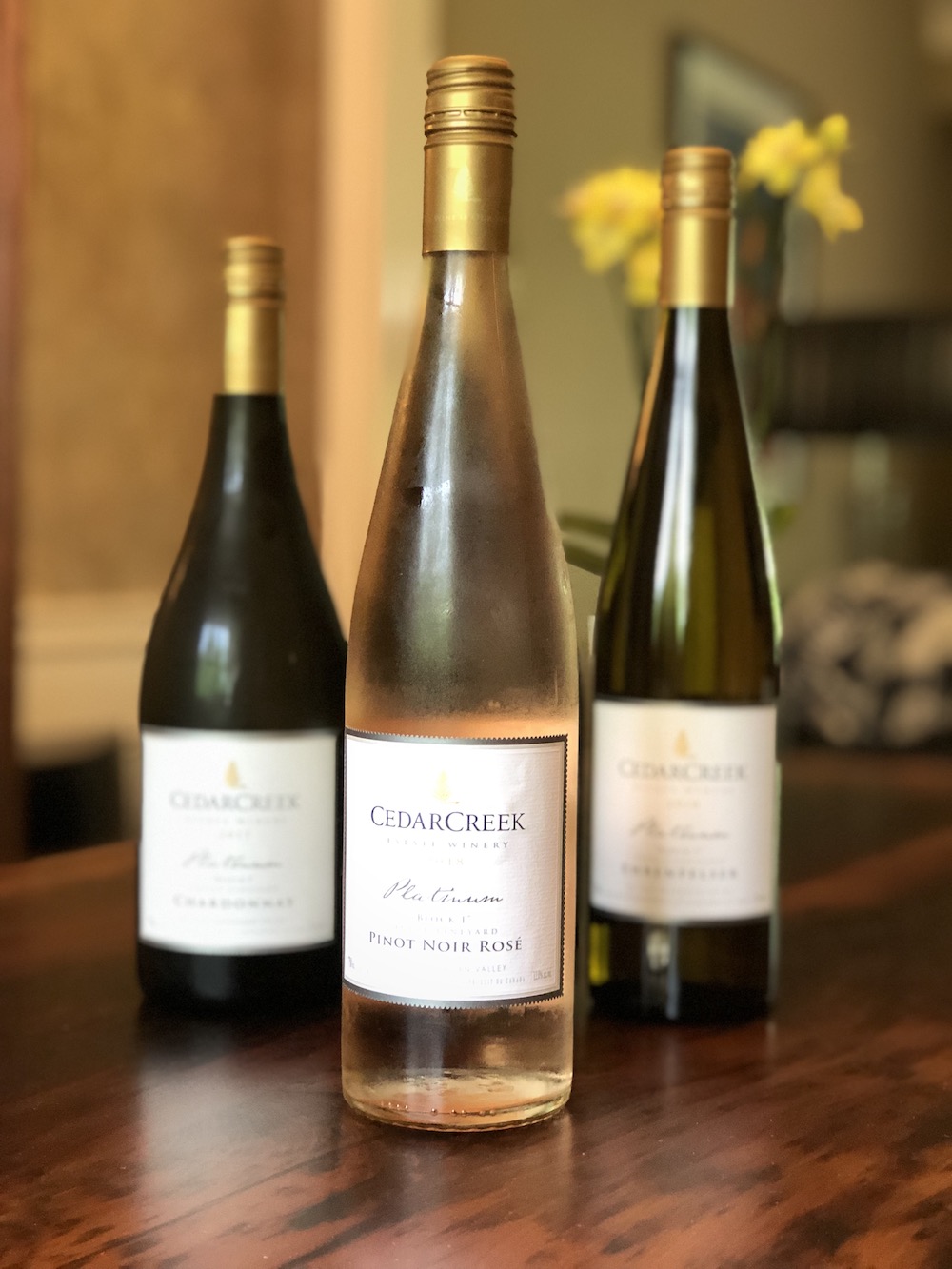
CedarCreek Platinum Block 1 Pinot Noir Rosé 2018 ($30, 93 points) — For this vintage, CedarCreek harvested the Block 1 Pinot in two picks, targeting mineral, zest, and citrus with the second pick looking for red fruits. To build further interest, a portion was wild fermented. It shows a light pale colour in the glass with a nose of fresh-picked strawberries, mineral intensity, cherries and subtle herbs. It has a touch of sweetness on the palate with a lovely mélange of red berries, minerals, gorgeous texture and mouth-watering acidity through the finish. Everything in harmony.
Culmina Family Estate Winery
(Okanagan Valley, Golden Mile Bench)
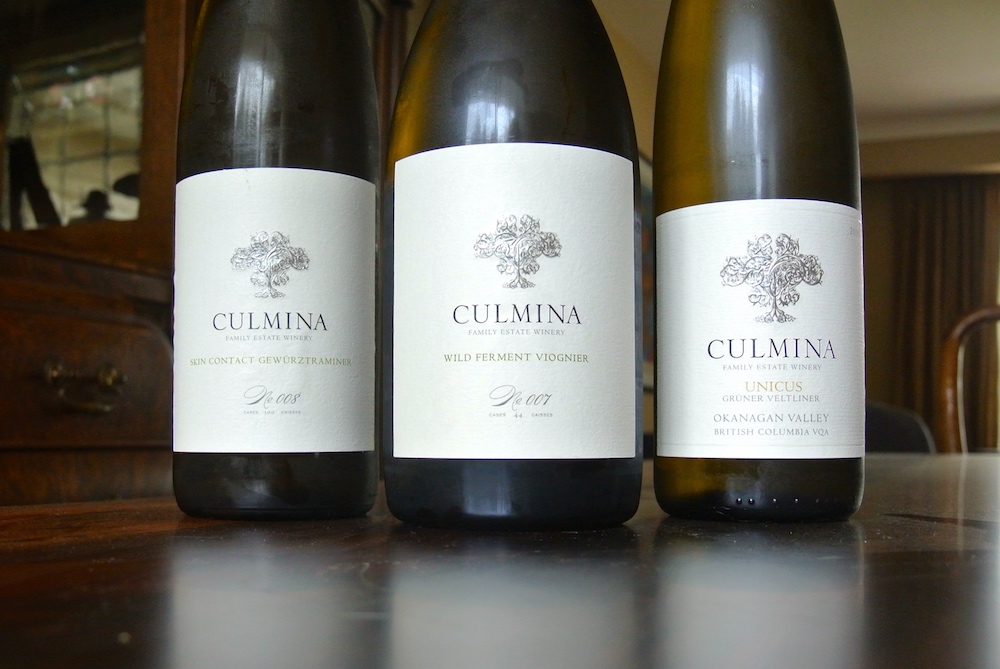
Culmina Unicus Grüner Veltliner 2018 ($27, 91 points) — Culimna made the Okanagan Valley’s first Grüner and it just gets better with age. It’s grown on the estate’s Margaret’s Bench — one of the highest vineyards in the Okanagan. Such beautiful minerality on the nose with notes of pear, peach and herbs. It’s rich and spicy on the palate with layered notes of pear, golden apple, tropical notes and white pepper with mouth-watering acidity on the dry finish.
Culmina Skin Contact Gewürztraminer 2018 No. 008 (Price not available, 92 points) — This Gew was soaked on the skins for 16 hours before being basket pressed into stainless steel for wild fermentation. It has a ginger-spicy nose with exotic notes of lychee, rose petals, tropical fruits and grapefruit. It has a lovely oily texture on the palate with wild honey, grapefruit, lychee, exotic tropical fruits and a long, luscious finish.
Culmina Wild Ferment Viognier No. 007 2018 (Price not available, 92 points) – It took 71 days for this crazy-good Vio to ferment naturally in stainless steel and neutral oak barrels. Such an interesting wine on the nose with pear, ginger, apricot, earth and tangerine. Lush and exotic on the palate, with a range of tropical fruits, minerals, spice and persistence through a long, long finish. Bravo!
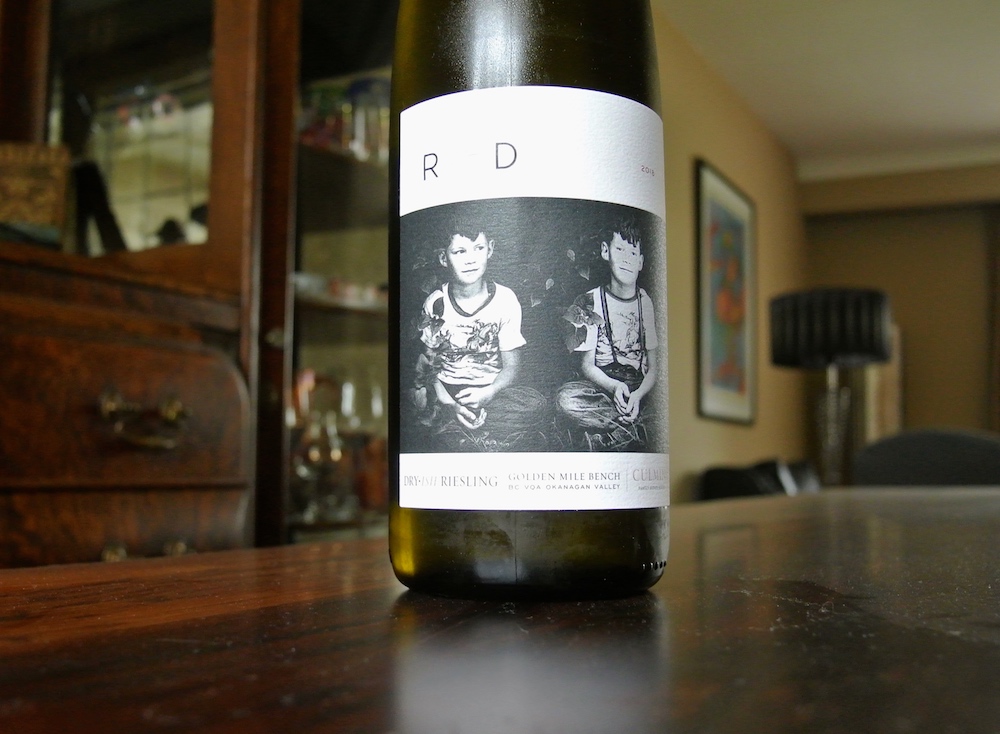
Culmina R&D Dry•ish Riesling 2018 ($19, 89 points) — Culmina’s second label Riesling is a nifty little wine with a nose of citrus, honeysuckle, touch of pear, minerality and green apple notes. It’s nice and dry on the palate with notes of lemon-lime, apple, stony minerality and bracing acidity on the finish.
Monte Creek Ranch Winery
(Thompson Valley)
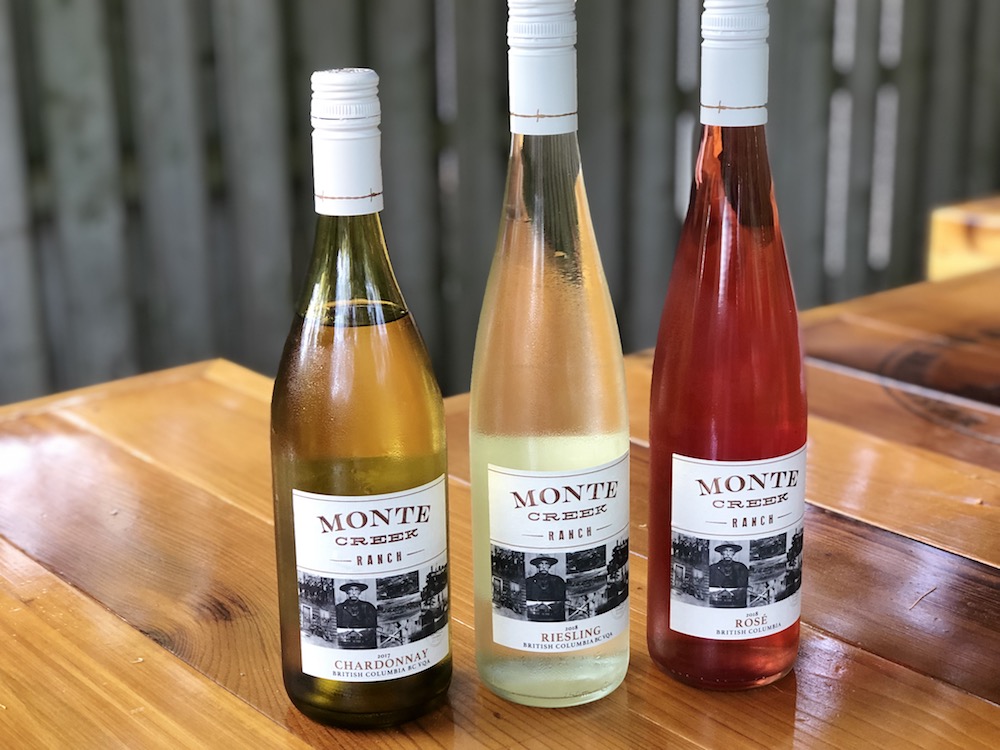
Monte Creek Ranch Chardonnay 2017 ($17, 88 points) — From a combination of fruit from the Naramata Bench and a site near the McIntyre Bluff. The nose shows crisp apple, pear, a touch of peaches and cream with citrus accents. It has a creamy feel on the palate with pear, apple, touch of citrus and mouth-watering acidity.
Monte Creek Ranch Riesling 2018 ($17, 88 points) — Half the Riesling for this wine was wild fermented. It has a nose of lime, citrus and fresh peaches. There’s a playful sweet-tart feel on the palate with lime zest, grapefruit, peaches, green apple and mouth-puckering acidity.
Monte Creek Ranch Rosé 2018 ($17, 87 points) — Made from 100% Marquette, this rosé has a pleasant range of savoury red berries and herbs. There’s a touch of sweetness on the palate with generous cherries and raspberries and a lifted/balanced finish. Good sipping rosé.
Sperling Vineyards (Kelowna)
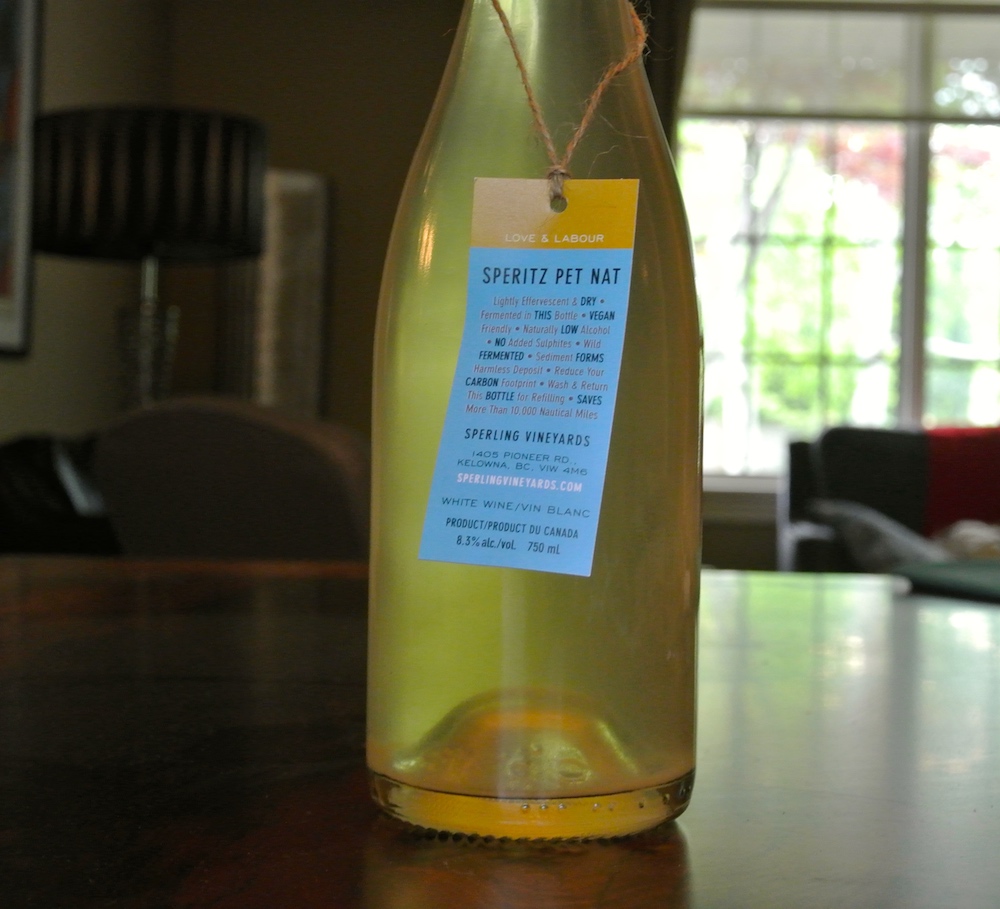
Sperling Speritz Pet Nat 2018 ($30, 91 points) — Love this delicious take on Pet-Nat (naturally fermented in bottle) sparkler from winemaker Ann Sperling. It’s certified organic, vegan friendly, with no sulphur added and made from certified organic Perle D’Csaba grapes. It pours with a medium effervescence that holds through the finish. Explosive nose of lime, lemon, apricot and fresh apple. It’s feisty on the palate with pronounced lemon-lime, floral notes, earth, bin apple and pop on the finish. A delight.
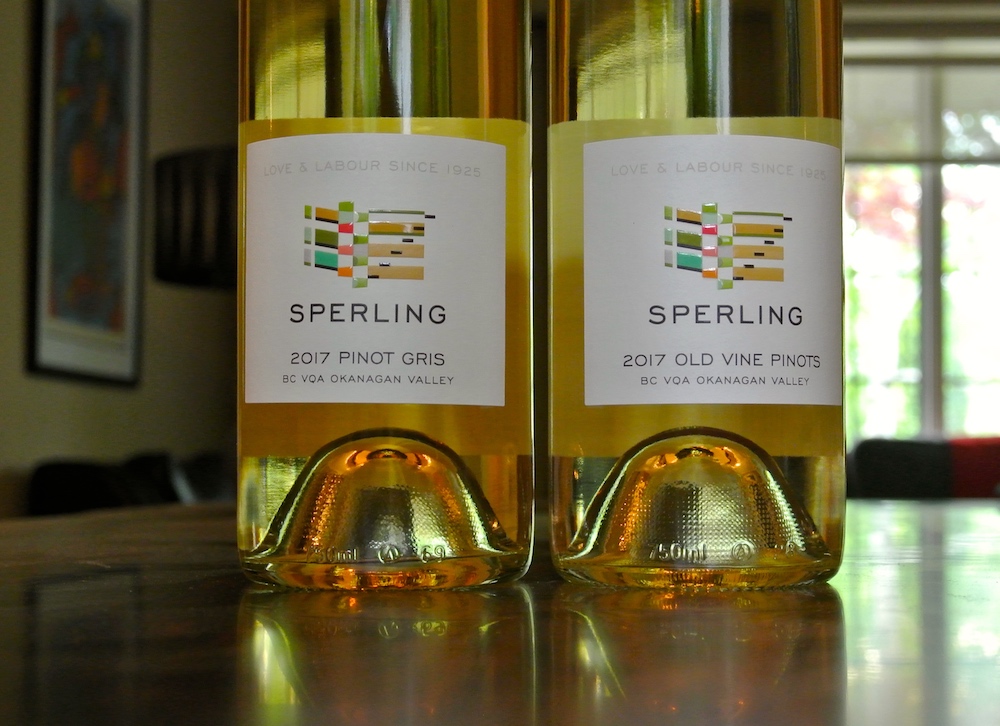
Sperling Pinot Gris 2017 ($21, 89 points) — A nose of honeysuckle, melon, fresh-picked peaches, salinity and sweet apple accents. It shows rich and ripe orchard fruits on the palate with fine texture and balance on the finish.
Sperling Old Vines Pinots 2017 ($25, 90 points) — This is a blend of Pinot Gris and Pinot Blanc with the vines at least 35 years old. Interesting nose of citrus, peach, pear and leesy undertones. It’s rich and textured on the palate with emerging tropical fruits, peach and pear on a fresh, finessed finish.
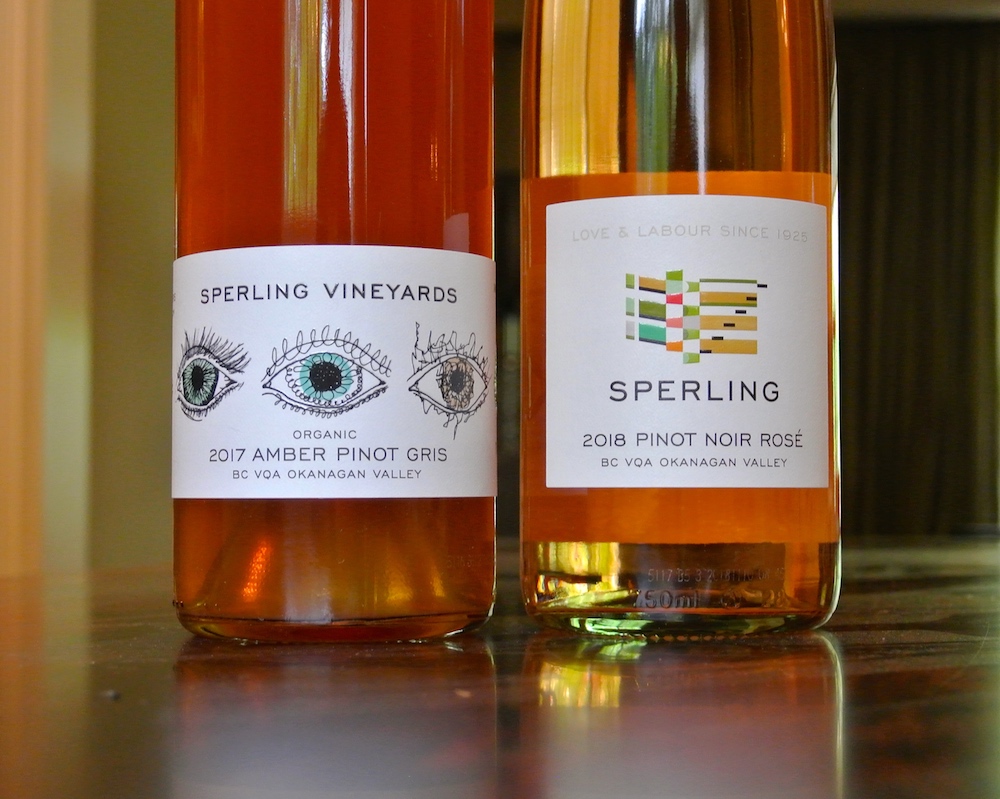
Sperling Vineyard Amber Pinot Gris 2017 ($30, 91 points) — From the Vision series, as indicated on one of the coolest labels in the country, comes this orange wine that’s 100% naturally made from 40% whole cluster, 40% whole berry and 20% pressed juice from hand-picked Pinot Gris. Natural yeast and malolactic fermented, this wine has had nothing added and nothing taken away (no sulphites, or other additives, and no fining nor filtration). It shows a glowing orange colour in the glass with a complex nose of tangerine, green tea, umami, muted stone fruits and then underlying foraged mushrooms and earth. Takes a different turn on the palate with more defined orchard fruits and just a hint of earth and tea with a vibrant finish.
Sperling Pinot Noir Rosé 2018 ($20, 89 points) — A pretty pale salmon colour in the glass, derived from three hours of soaking on the skins, with a nose of pronounced crushed red raspberries, cherries, minerals and cranberries. There is a touch of sweetness, but balanced by the racy acidity on the palate, with the full range of red fruits that shine through the finish.
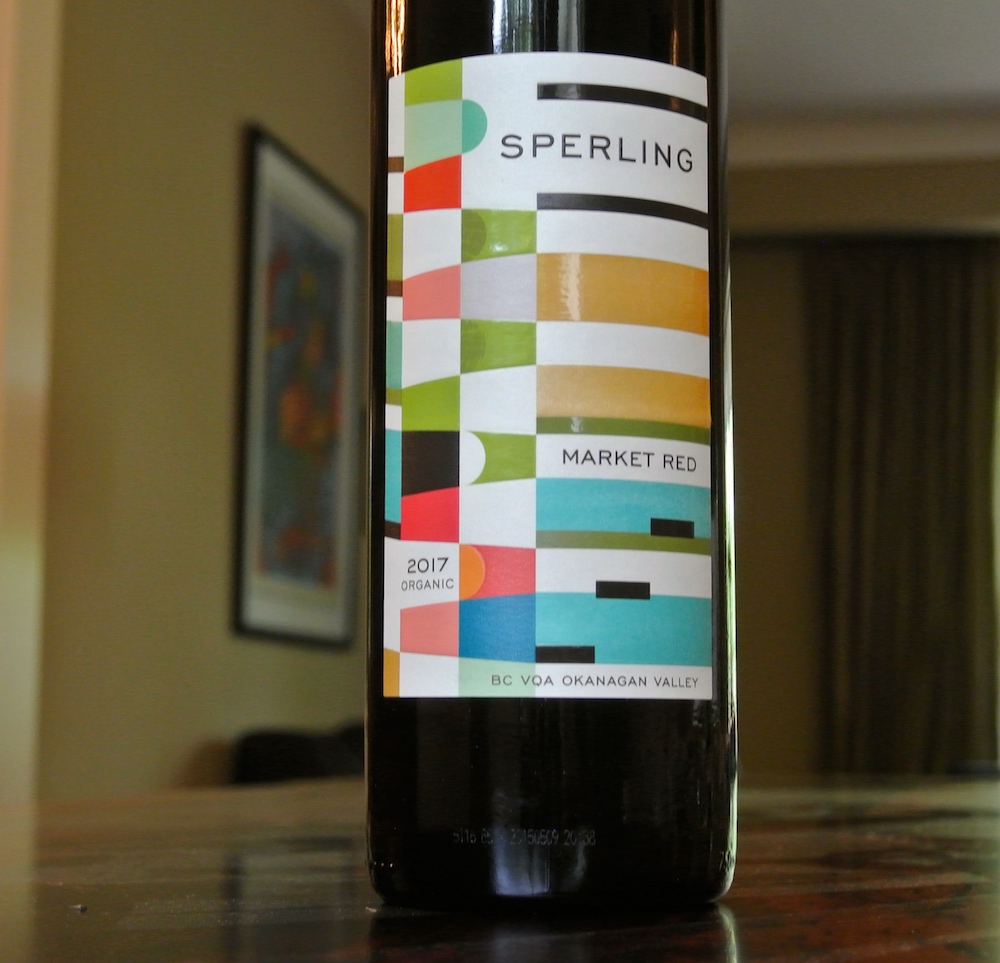
Sperling Organic Market Red 2017 ($20, 88 points) — Pretty tasty wine for $20, it combines estate Pinot Noir and Marechal Foch from vines that average 30 years old. The nose shows black cherries, black currants, anise, subtle spice and cedar. It’s soft and supple on the palate with more red fruits and underlying currants, plums and spice accents.
Hester Creek Estate Winery
(Okanagan Valley, Golden Mile Bench)
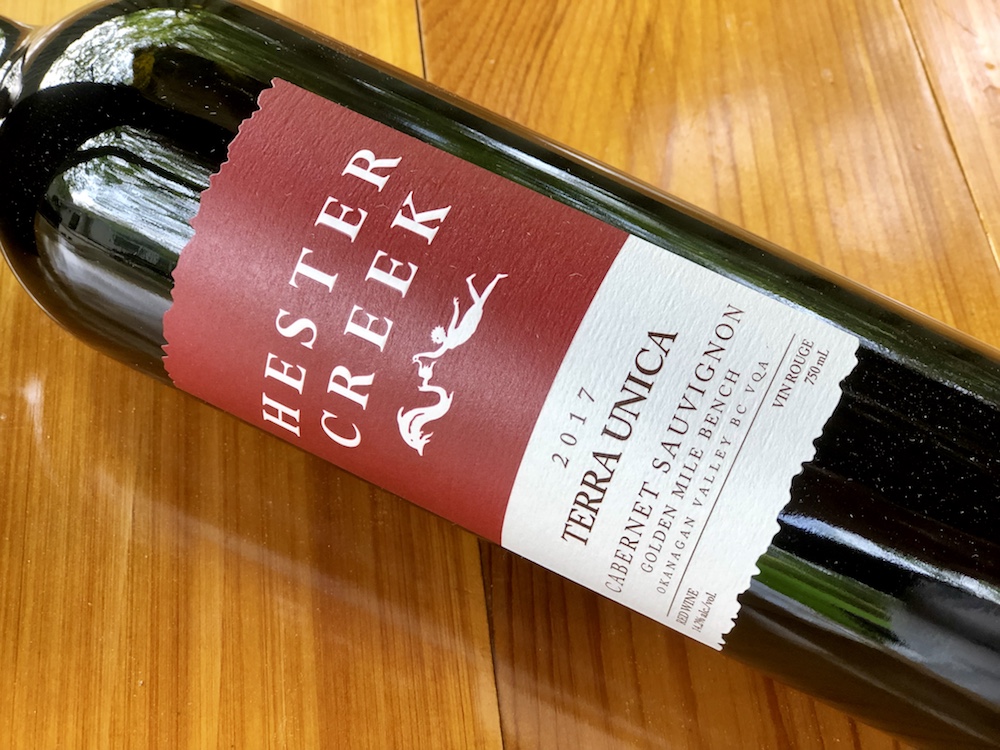
Hester Creek Terra Unica Cabernet Sauvignon 2017 ($29, 91 points) — Back after a lengthy hiatus, this estate Golden Mile Cab Sauv was aged primarily in French oak for a minimum of 12 months. A classic Okanagan nose of ripe blackberries, cassis, black currants, cigar box cedar and range of elegant spice notes. It’s rich and savoury on the palate with thick black fruits, polished tannins, black licorice, toasted vanilla and lovely spice notes and fine-grained tannins through a long finish.
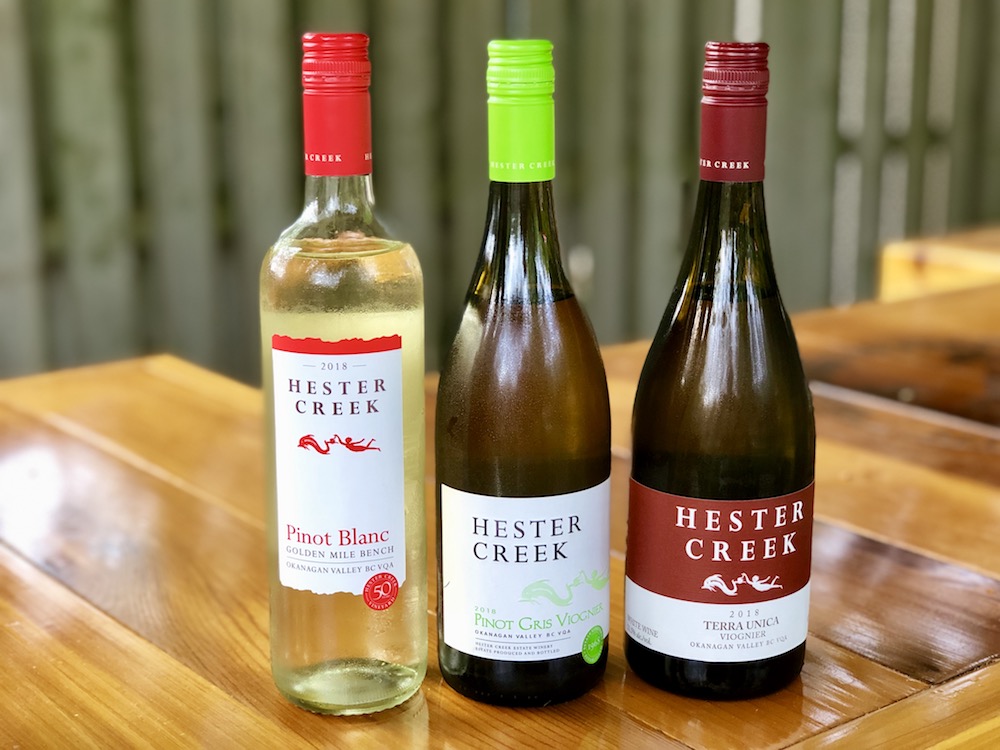
Hester Creek Terra Unica Viognier 2018 ($20, 90 points) — The fruit for this nifty Vio is sourced from Osoyoos and cold fermented in stainless steel for 17 days. What a pretty nose of honeysuckle, summer peaches, tangerine and apricots. Nice and dry on the palate with tropical fruits, peach and an interesting vein of minerality with a crisp, clean finish.
Hester Creek Pinot Gris Viognier 2018 ($17, 88 points) — A highly aromatic nose of fresh pear, peach, melon and citrus zest. There is a touch of honey on the palate with fruit forward notes of peach, pear, apricot and melon with a vibrant finish.
Hester Creek Pinot Blanc 2018 ($16, 89 points) — Crafted from estate fruit, primarily from old vines planted in 1968, the nose shows lovely peaches, cream, tangerine and grapefruit. It’s fresh and lively on the palate with a mélange of orchard fruits, subtle herbaceousness, a creamy texture and good zip on the finish.
JoieFarm
(Okanagan Valley, Naramata Bench)
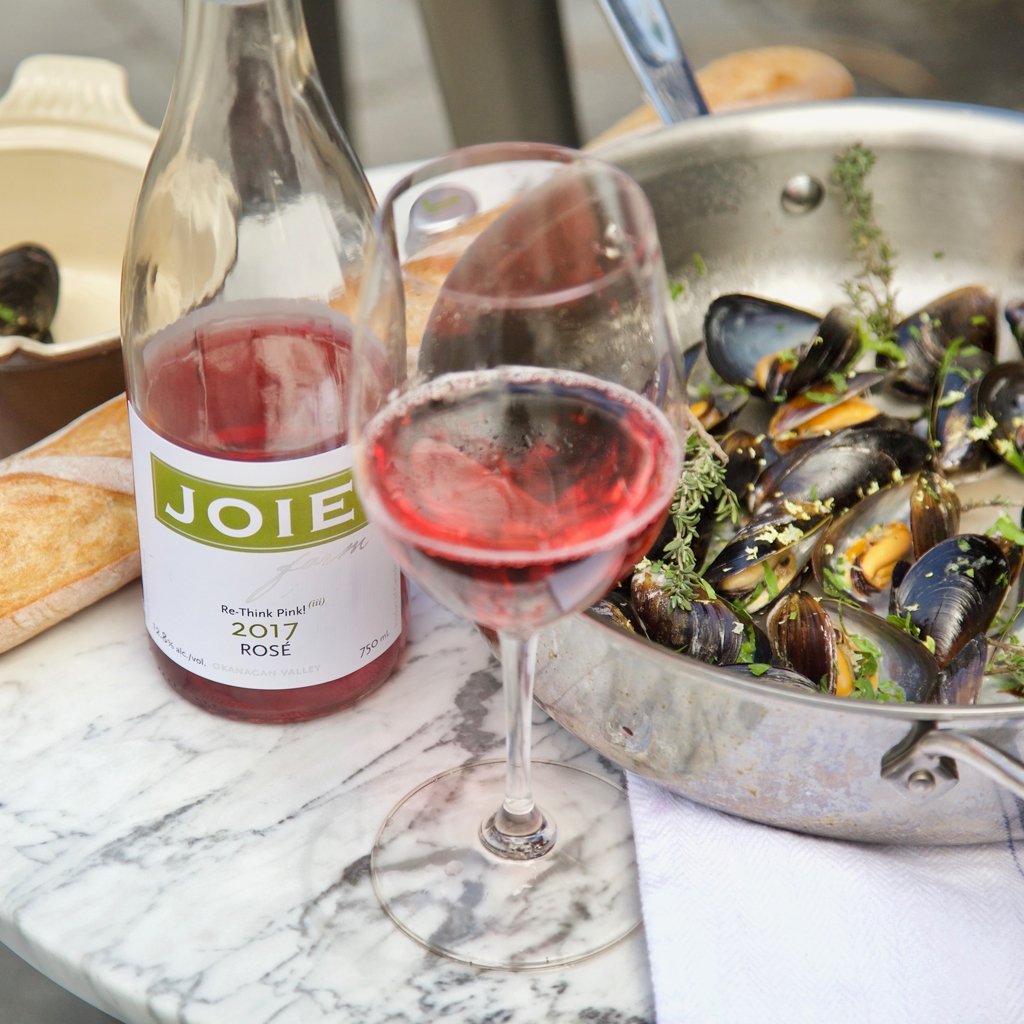
JoieFarm Re-Think Pink Rosé 2018 ($21, 89 points) — JoieFarm was one of the first B.C. wineries to produce rosé, giving rise to the rosé revolution back in 2004. This is a blend of Pinot Noir (58%), Gamay (28%), Pinot Gris (10%) and Pinot Meunier (4%) with a nose of raspberries, cherries, strawberries, herbs and a subtle savoury notes. It’s bracingly dry on the palate with mouth-watering acidity, a bevy of crushed red berries, in short … highly crushable!
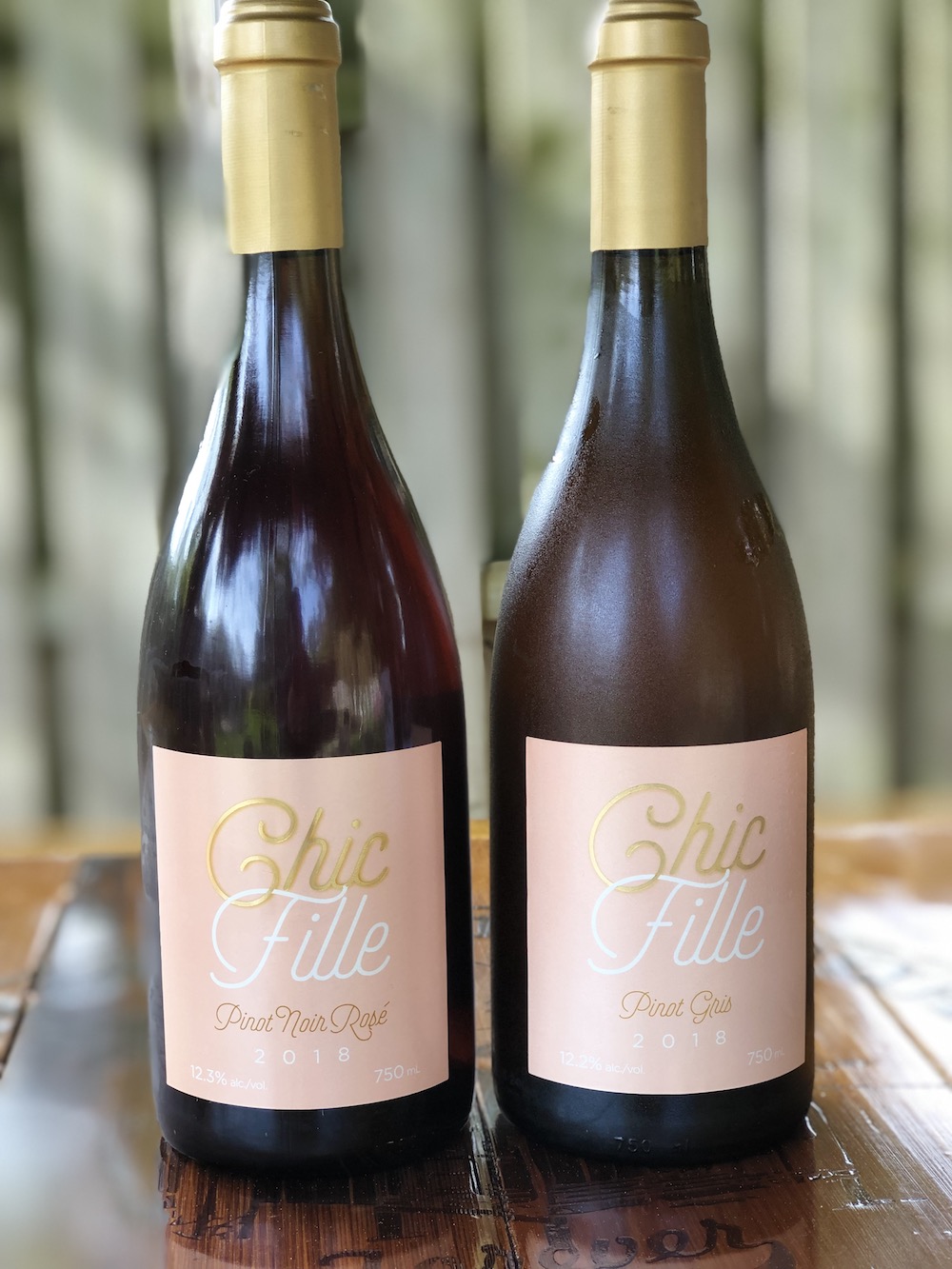
JoieFarm Chic Fille Pinot Noir Rosé 2018 ($30, 92 points) — This Pinot Noir Rosé is the second rosé release in the Chic Fille project by Heidi Noble, owner and winemaker. It was originally destined for the sparkling base wine for the Plein de Vie, but when tasting through the barrels Noble pulled this aside as an example of a particularly fruit-forward rosé. It shows an intense magenta colour in the glass with a nose of forest berries, wild raspberries, tangerine and Mandarin orange. It’s perfectly dry on the palate, astringent even, with lovely freshly crushed red berries, blood orange, touch of puckering tannins and a vibrant finish.
JoieFarm Chic Fille Pinot Gris 2018 (Sold out, 91 points) — This skin-contact Pinot Gris is the third wine white release in the Chic Fille line-up. The Chic Fille wines are meant for teaching and learning and this wine was specifically made as a challenge for Noble. Pinot Gris is not her favourite varietal as it is often over-cropped in British Columbia and vinified in an innocuous manner. It is often not very interesting, either on the nose or the palate. Instead of treating the vinification as a traditional white wine fermenting the juice without skins, she used extended skin-contact in the manner of rosé. What an interesting Pinot Gris with a defined nose of ripe strawberries, pomegranate, pomelo and lemon zest. It’s bright, tart and lively on the palate with a subtle effervescence and shows a basket of fresh-picked strawberries, earth, melon and mouth-watering acidity.
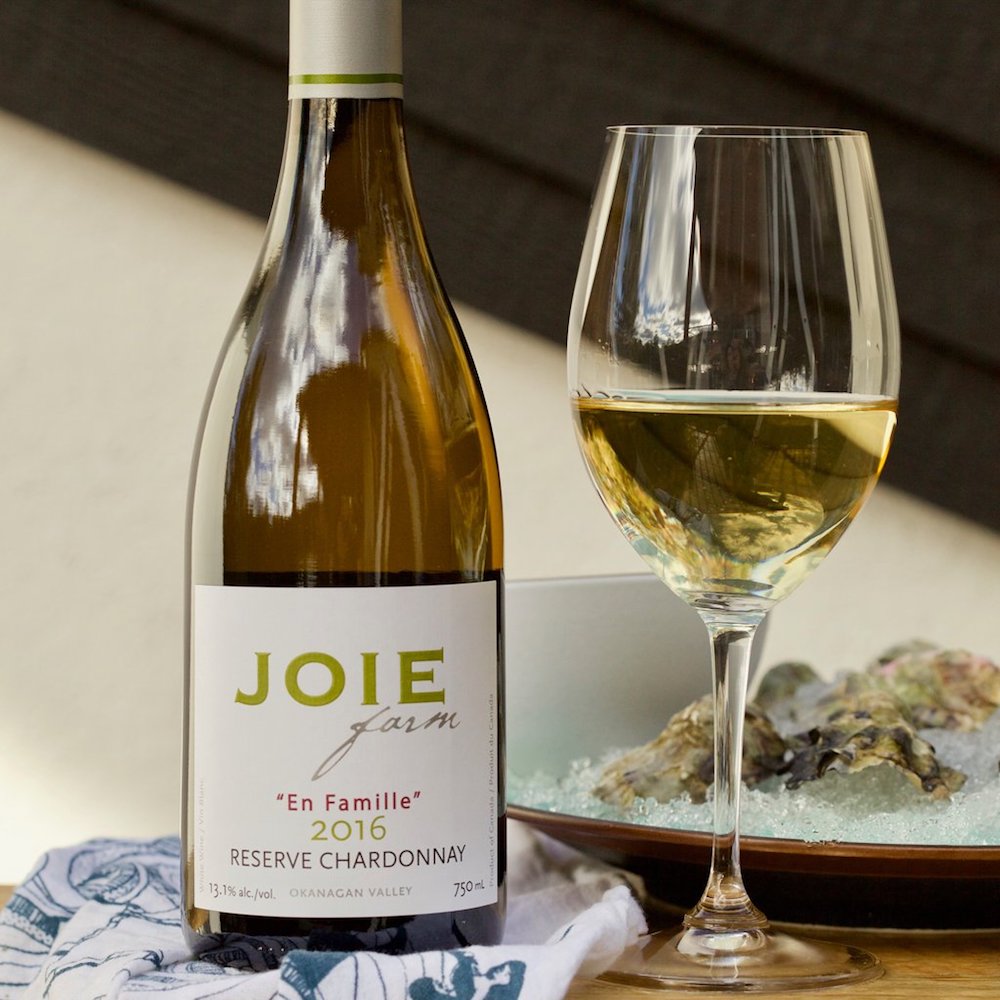
JoieFarm ‘En Famille’ Reserve Chardonnay 2017 ($30, 93 points) — The top tier “En Famille” Reserve Chardonnay is a premium vineyard selection from our most prized block at the Joie-run old-vine Chardonnay Musqué vineyard site on the Skaha Bluff and the Plein de Vie Vineyard on the Naramata Bench. This is beautifully on point and the best reserve Chard made at JoieFarm, in my opinion. Elegantly appointed on the nose with Meyer lemon, pineapple, creamy notes and such vivid minerality. It has a creamy but bright feel on the palate with lemon chiffon, touch of tropical pineapple, river-rock minerality and such purity, finesse and textural beauty that you want to take sip after sip of this graceful, elegant Chardonnay. Lovely wine.
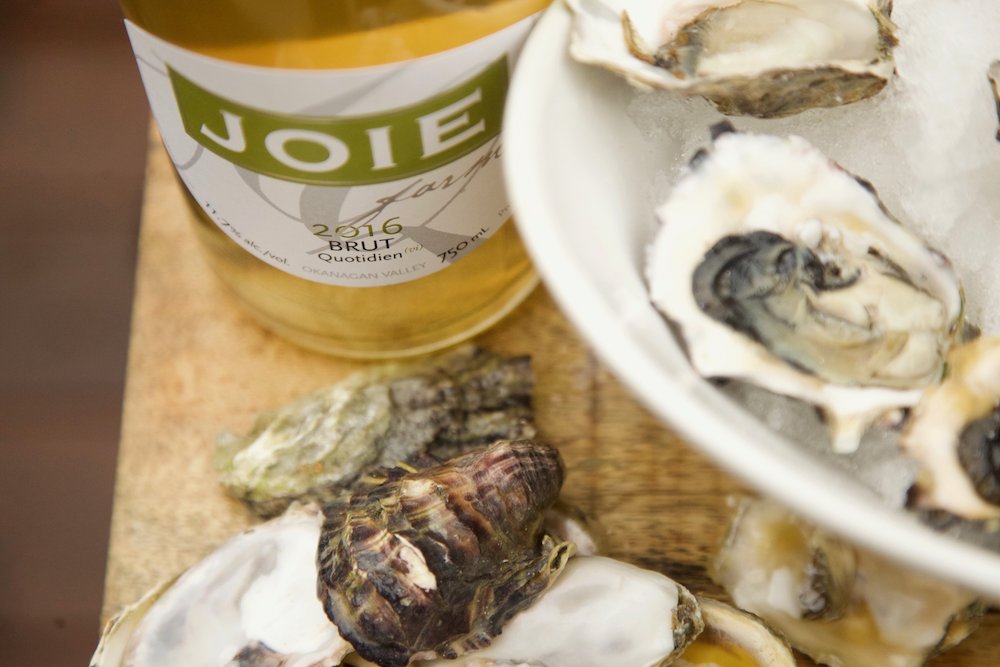
JoieFarm Quotidien Brut 2018 ($24, 90 points) — Quotidien means “your daily ration” and was made in JoieFarm’s pursuit of fun, accessible, everyday bubble drinking while honouring the blending traditions of the great Champagne houses of France. The base wine is aged sur lie in neutral puncheons to add texture and “lees-y” biscuit flavours (in absence of the slow autolysis of traditional method bubble) and then blended with an addition of carefully and intentionally oxidized Riesling from the estate’s solera prior to second fermentation by Charmat method. Made from Chardonnay (30%) and Riesling grapes, it pours a frothy mousse with a nose lemon, biscuit, leesy notes, lime zest and subtle toasty/brioche accents. It’s perfectly fresh on the palate with the Riesling strutting its stuff and displaying lemon and lime, a touch of green apple and toasty/nutty notes through a finessed, vibrant finish. Charmat sparkling never tasted so good. Bravo.





Comment here